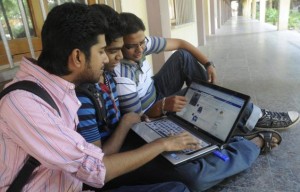India will not censor online social networks such as Facebook said a minister, but users will need to obey the same rules as the press.
“I want to say once and for all, without any obfuscation, no government in India will ever censor social media,” said Telecoms Minister Kapil Sibalat an IT summit in Mumbai.

“I never wanted to censor social media and no government wants to do so. But like the print and electronic media, they have to obey the laws of the country,” Mr Sibal told the gathering.
Mr Sibal had meetings with leading Internet companies late last year. He asked about the possibility of checking content before it is posted online by users as he had concerns that obscene images could be at risk of offending Muslims or defaming politicians.
He said: “The media reported that I had said I wanted to pre-screen the content on social media. I have never even heard of the word pre-screen,”
Since these meetings, 19 Internet firms including Google, Yahoo! and Facebook have been targeted in criminal and civil cases holding them responsible for content posted by users on their sites.
“All I want is that they (social media) should follow the laws of the land. Social media must not consider itself to be above that,” Mr Sibal said.
Google and Facebook said earlier this month that they had removed the allegedly offensive content used as evidence in the court cases.
Facebook is banned in China and Google has moved its operations out of China in 2010 in protest of censorship laws there.
The debate about social networks mirrors a larger national dialogue about freedom of speech in the world’s biggest democracy following recent protests by religious groups.
Indian-origin writer Salman Rushdie was prevented from speaking at a literature festival last month after Muslim groups protested against his presence over his allegedly blasphemous 1988 novel “The Satanic Verses“.
A group led by an author and journalist Nilanjana Roy organised public readings of banned literary works on Monday 13th February 2012 as a way of protesting against what they said were recent curbs on intellectual freedom.
The initiative called “Flashreads for free speech” was widely advertised on social networks including Twitter and Facebook.
(AFP 14 February 2012)







